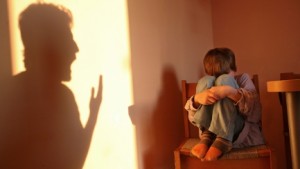Childhood Sexual Abuse and later effects
 Men who experienced childhood sexual abuse are three times more likely to have a heart attack than men who were not sexually abused as children. There is no association between childhood sexual abuse and heart attacks among women.
Men who experienced childhood sexual abuse are three times more likely to have a heart attack than men who were not sexually abused as children. There is no association between childhood sexual abuse and heart attacks among women.
Male survivors of childhood sexual abuse are three times more likely to be victims of physical abuse as men. However, too few men reported sexual abuse as adults to establish a statistically significant correlation.
Although there can be physical force involved in sexual coercion, it more often involves such tactics as pressure, persuasion, insistence, manipulation and lying to have sex with an unwilling female partner.
Half of sexual abuse survivors wait for sometime before disclosing they were victimised. The psychological distress of victims includes anxiety, depression, troubles concentrating and irritability. Certain victims suffer from post-traumatic stress disorder; some relive the abuse psychologically while others have dulled emotions or become hyper-vigilant.
Men who report they were sexually abused during childhood are particularly vulnerable to having a heart attack later in life. The abuse-heart attack link would be due to unhealthy behaviors in sexual abuse survivors, such as higher rates of alcohol use or smoking, or increased levels of general stress and poverty in adulthood when compared to non-abused males.
However, statistically there are 15 potential risk factors for heart attack, including age, race, obesity, smoking, physical inactivity, diabetes mellitus, education level and household income, and still found a three-fold risk of heart attack.
It is unclear why sexually abused men, but not women, experienced higher odds of heart attack. However, the results suggest that the pathways linking childhood sexual abuse to physical health outcomes in later life may be gender-specific. It is possible that females adopt different coping strategies than males as women are more likely to get the support and counseling needed to deal with their sexual abuse.
Adverse child experiences become biologically embedded in the way individuals react to stress throughout their life, particularly with respect to the production of cortisol, the hormone associated with the “fight-or-flight” response. Cortisol is also implicated in the development of cardiovascular diseases.

Comments are closed.